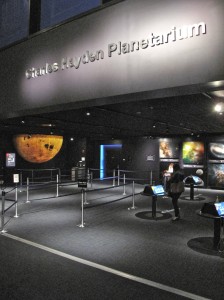Recommended

If you read yesterday's post about exoplanets and were pining for ways to get involved, you're in luck. Whether you're an MIT student or an aspiring planet hunter, living in Cambridge or living in Cancun, there's something for you.
How to Get Involved with Exoplanets if You're...
An MIT student
Several researchers at MIT's Kavli Institute for Astrophysics and Space Research are working on exoplanets, including Kerri Cahoy and Joshua Winn. Find their contact information using MIT's People Directory.Sara Seager also has a few exoplanet research groups. Visit her website for details and contact info.
An aspiring planet hunter
Participants in the citizen science project Planet Hunters (www.planethunters.org) sort through Kepler data and search for possible transit events. What happens if you spot a transit? The Planet Hunters website says it "maintains a list of transiting planets that the Kepler team announces, so the first thing that will happen is that we will check that list. If the flagged transit event is for a star that the Kepler team are already keeping an eye on, we'll let you know. If this event has not been identified and several Planet Hunters are flagging the same data, the science team will investigate. If this appears to be a new discovery, then we will follow up to obtain spectroscopic data using the Keck telescope in Hawaii. If the transit candidate passes all of the screening tests, the result will be submitted for publication. Planet Hunters who discover new transiting planets will be included as co-authors on our papers."Learn more about Planet Hunters in this short tutorial. [vodpod id=Video.5552466&w=425&h=350&fv=]
Close to Cambridge
Last weekend the Museum of Science in Boston unveiled its new $9 million Charles Hayden Planetarium, and one of the first programs on its agenda, called "Undiscovered Worlds" is about (you guessed it!) exoplanets. This Slice blogger had an opportunity to see the show and found it dazzling. Below is a photo from the trip.The exoplanet show runs through March 12, 2011.
Far from campus
Use the MIT News Office to stay up to date on exoplanet research. Archived articles are located at http://web.mit.edu/newsoffice/topic/exoplanets.html.You can also take a free course through MIT OpenCourseWare called Extrasolar Planets: Physics and Detection Techniques. According to the syllabus, the course "covers the basic principles of planet atmospheres and interiors applied to the study of extrasolar planets (exoplanets). We focus on fundamental physical processes related to observable exoplanet properties. We also provide a quantitative overview of detection techniques and an introduction to the feasibility of the search for Earth-like planets, biosignatures and habitable conditions on exoplanets."








